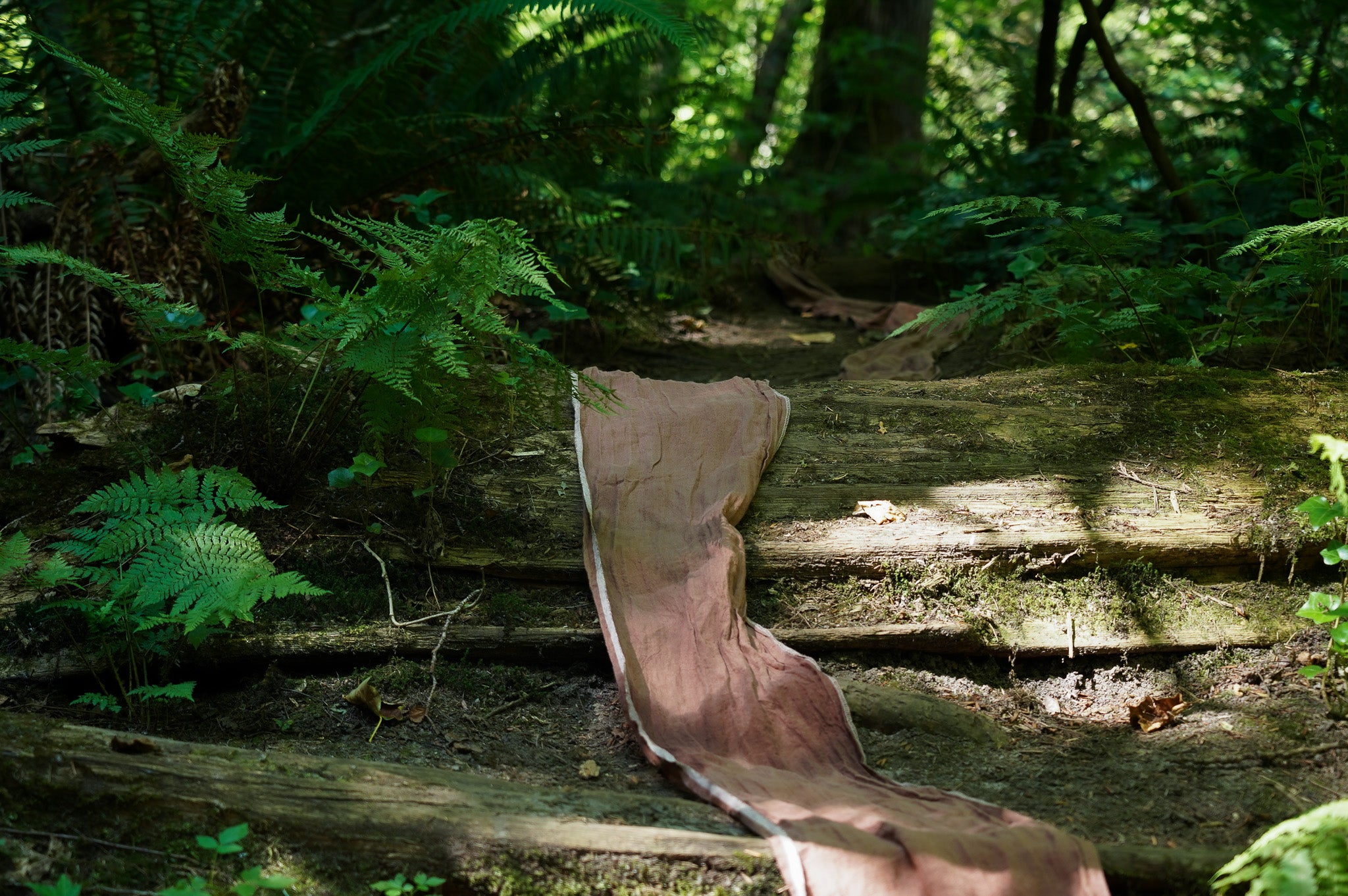Linen: Your Most Sustainable Home Textile Ever
Versatile, easy-going, and sustainable—linen has established itself as a perennial favourite in home design.
And why not? It's soft, breathable, and even looks beautiful wrinkled. For people who value wellness and keeping the fabrics in their homes and next to their skin as natural as possible, we source our 100% pure linen sheets made from European-certified flax for a refined, lived-in fabric that's everything you want and nothing you don't.
Linen possesses a natural elegance that invariably draws designers and decorators. The fabric's surging popularity inspires new industries to examine and explore new potential uses for this ancient textile. As a plant cultivated for thousands of years, 100% pure linen textiles are a real trend for the future when it comes to sustainability, especially with care and diligence around production practices. From seed to sheet (even post-use), our linen sheets and textiles check every sustainability box.
"As a plant cultivated for thousands of years, 100% pure linen textiles are a real trend for the future when it comes to sustainability."
For those still researching the benefits, linen is a plant-based fabric made from the fibres of the flax plant—a naturally pest-resistant, drought-tolerant, and regenerative crop. Flax is astonishingly renewable, with a short harvest cycle of 80 to 100 days after planting, which means it can be grown between the growing seasons of other crops.
In most cases, flax requires no irrigation and can be cultivated using rainfall alone. Cotton, by comparison, is much thirstier, requiring between 7000 and 29000 litres of water for 1 kg of finished product. Producing pure linen fabrics requires no chemical treatment or processing and produces little waste. Moreover, our flax fibre is woven by European artisans for heirloom quality and texture, offering beautiful and hearty finishes, breaking back down into the earth post-use.
"In most cases, flax requires no irrigation and can be cultivated using rainfall alone."
The relaxed, lived-in look of our soft, stone-washed linens may not fit everyone's aesthetic. However, for us, the fabric's perfect imperfections are part of the draw—linen is a dynamic fabric with a porous weave. There are subtle changes in thickness and texture that mimic our own skin. It's a fabric with life. It feels natural and comforting against the body, especially compared to synthetic, homogenously smooth materials that expose the skin to chemicals or stifle air flow with tight weaves.
For clients who want to ensure they're buying the most natural, sustainable materials for their homes, we recommend looking for labels that verify supply chain transparency—organic, European Flax and/or OEKO-TEX certifications are good options.
It should be noted linen must be treated as an investment. Creating high quality linen sheets is labour-intensive, and certifications are expensive. Part of the reason cotton has reigned as a textile in fashion and home design, despite linen's charm and wellness benefits, is that cotton is cheaper and more accessible, easier to dye and care for. Nevertheless, linen has remained popular because it's breathable and comfortable with antibacterial, temperature-regulating qualities contributing to deep, uninterrupted rest.
"At its sustainable best, pure linen textiles and sheet sets take about two and a half months to degrade."
At its sustainable best, pure linen textiles and sheet sets take about two and a half months to degrade. Most environmental costs occur during production—it's processes like shipping and dying that we're striving to improve as we continually audit production, source new regenerative fibres, and invest in impact reports run by credible third parties, such as Green Story.
Linen is a luxurious, wellness-inspired fabric that's becoming a real trend in fashion and homewares. As a plant cultivated for thousands of years, more industries are looking at how linen can help them produce more sustainably. As linen's popularity continues to surge, this textile will likely become more important as an everyday material around the home—to the benefit of people and the environment.

